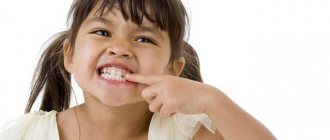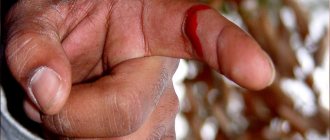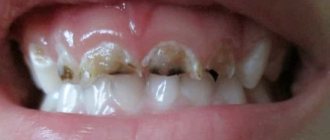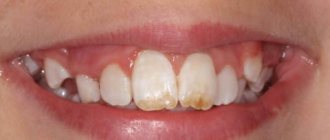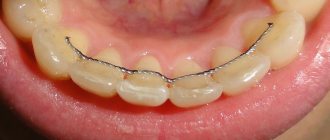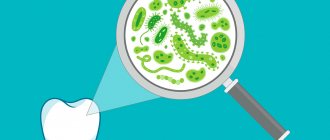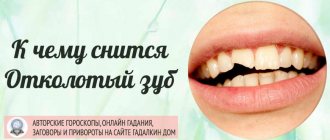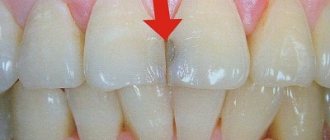Bruxism is a paroxysmal contraction of the masticatory muscles that occurs periodically during sleep, accompanied by clenching of the jaws and grinding of teeth. Bruxism is observed, according to research, in 1-3% of the population, both adults and children.
The clinical picture of the disease consists of sudden grinding of teeth, which continues for several seconds or minutes. During sleep, such attacks are repeated many times and may be accompanied by breathing problems, changes in blood pressure, and heart rate.
Causes.
The causes of bruxism are not fully understood. According to most researchers, bruxism more often occurs in people experiencing stress, psychological disorders that lead to internal anxiety, anger, tension, and an excited state before bedtime. In addition, the causes of bruxism can be sleep disorders, namely somnambulism, enuresis, nightmares, snoring and periods of respiratory arrest during sleep.
As a rule, the diagnosis is established on the basis of anamnesis. The patient may complain, in addition to teeth grinding, of muscle and joint pain in the lower jaw. The diagnosis can be confirmed using a polysomnographic study, which records the contraction of the masticatory muscles. Polysomnography is also important to exclude epilepsy as a causative factor of bruxism.
The nature of phraseological units
When a patient comes to a doctor’s appointment and says: “I clench my teeth hard,” this indicates a certain symptom. In medicine, the following clenching of the jaws is distinguished:
- As a reaction to an event (anger, fear, physical stress).
- Involuntary grinding of teeth (bursism).
Apparently, observing people’s behavior in various situations gave rise to this expression. Interestingly, the Holy Scriptures mention “weeping and gnashing of teeth” as people’s reactions to punishment.
The life of modern people is characterized by a fast rhythm, heavy workload, all kinds of problems and stress. New diseases have appeared, caused by the body functioning at the limit of its capabilities. One of them is bursism. This is an unconscious strong clenching of the jaws, often during sleep, leading to pathology of the oral cavity and masticatory apparatus. Doctors unanimously name the reason - the inability to relax and rest, and cope with negative emotions.
Types of bruxism.
There are two forms of bruxism: daytime and nighttime.
Daytime bruxism manifests itself while you are awake. A person clenches his teeth strongly (even to the point of dental stenosis) in moments of emotional stress.
Night bruxism manifests itself in the clenching of teeth and grinding or knocking them during sleep, when a person cannot control himself. In this case, several attacks may occur during the night. Nighttime bruxism occurs much more often than daytime bruxism.
What other languages have this expression?
We find similar expressions in German and English. In German, the expression die Zähne beißen literally translates as “to bite your teeth.” It is used by E.M. Remarque. Germans can also say: Ich biß die Zähne zusammen. This literally means “I bit my teeth together.”
The English language also has this phraseological unit. J. Rolling, for example, in the series of books about Harry Potter uses the expression to gritted his teeth (“to gritted his teeth”) like this: Harry gritted his teeth and nodded (“Harry gritted his teeth and nodded”).
But there is an even more ancient expression: Bite a bullet, which literally translates as “bite a bullet.” Interestingly, this idiom was first a literal description of a procedure used in place of anesthesia. The fact is that in the 1700s, during emergency surgery on the battlefield, soldiers were given a bullet in their mouth to distract them from the pain. The man did not scream so much and was distracted: in order not to swallow the bullet, it was necessary to control its position in the mouth.
Over time, the expression “bite the bullet” has become allegorical and now means “doing something unpleasant, uncomfortable.” This could be making a difficult decision, driving an old car, passing an unpopular law for the sake of future benefits.
In French there is the same expression (mordre la balle), literally meaning “to bite the ball.” In Italian there is stringere i denti, which translates to “tighten your teeth.”
Treatment.
Treatment of bruxism still remains a difficult problem. It depends largely on the time of development, causes and nature of the disease. Its treatment will be more successful the earlier the disease is diagnosed. You should not be concerned about short-term (up to 10 seconds) irregular attacks of teeth grinding. Most likely, this is not bruxism, but immediate reactions to stressful situations of a healthy person. The alarm should be sounded when such attacks become regular.
It is almost pointless to fight bruxism on your own. As soon as you suspect you have this disease, contact a sleep specialist. He will give you professional advice and prescribe competent treatment. It is important to know that bruxism in children sometimes does not require special treatment, and may eventually go away on its own by the age of 6-7 years. Bruxism in adults must be treated.
If bruxism persists in an adult, then:
- If possible, it is necessary to eliminate any existing dental problems or malocclusions.
- While sleeping, wear a special intraoral protective device (mouth guard) made of rubber or soft plastic, which is made to the shape and size of your teeth, is fixed between the teeth and prevents injury. Although this device helps to cope with bruxism, it does not cure it.
- As an additional treatment, you can use magnesium, calcium and B vitamins. Saturating the body with these microelements and vitamins can reduce the convulsive activity of the masticatory muscles during sleep.
- You can also apply a warm, damp towel to your cheeks, this will help you relax muscles that are tired from clenching your teeth.
- Learn to relax. - Since the main cause of bruxism is everyday stress, any means of relieving stress can help you - listening to music, reading books, walking or taking a bath. You may need to seek counseling to learn how to effectively cope with stressful situations.
- Psychotherapy is the best way to help, which is aimed at identifying conflicts, understanding them and developing the ability to more effectively cope with the everyday difficulties of life.
Psychosomatic causes of pathological tooth wear. Bruxism
A recent story in the media about how a dentist allegedly pulled out 22 healthy teeth from a patient prompted me to write this article. A woman who came to the clinic with the problem of temporomandibular joint dysfunction received complex orthopedic treatment, but did not experience relief. From a technical point of view, the work was done correctly. Why was there no positive effect from the treatment? Let's try to figure it out.
So, the patient was diagnosed with pathological tooth wear and dysfunction of the temporomandibular joint.
What is the root cause, did tooth wear lead to dysfunction, or did problems in the joint provoke wear?
Let's turn to the medical literature.
“Pathological abrasion of teeth is a dental disease, which is characterized by an abnormally intense reduction in the hard tissues of the tooth and a violation of the anatomical shape of the tooth crown. Recently, pathological tooth wear has become an increasingly common problem. This disease already affects about 12% of people (most often men) and this number is gradually growing.”
Consequences of tooth wear:
- Distortion and destruction of the surface of the teeth, resulting in the formation of sharp edges of tooth enamel, which can injure the tongue, as well as the mucous membrane of the cheeks and lips
- Changes in tooth height (with further development of the disease), leading to malocclusion and distortion of the shape of the lower part of the face
- Changes in the position of the temporomandibular joint, which can cause various types of jaw injuries
- Increased sensitivity of teeth to various types of temperature, chemical and mechanical stimuli (hot, cold, sour, sweet foods, etc.)
I want to write a separate article about the temporomandibular joint later; this topic is worthy of a separate discussion.
According to my observations, the percentage of people susceptible to this disease is much higher. I would put the figure at 70% among older men. The saddest thing is that this disease has become much “younger” and women have also become susceptible to this pathology.
Among the causes of pathological abrasion are malocclusions, endocrine diseases, and metabolic diseases. However, most sources cite bruxism as the cause.
Bruxism is the grinding of teeth at night (bruxism itself) or during the day (bruxomania). There are several reasons, but most researchers are inclined to believe that the cause of bruxism is psychological (stress). I have not found a more detailed description of the causes of bruxism in the scientific literature. In my opinion, the reason for this gap is the lack of interaction between psychologists and doctors of other specialties, especially dentists.
Unfortunately, current practice shows that dentists often perform only mechanical work to solve dental problems, without going into the sections of general medicine, and the psyche is a “dark forest” for us.
As the doctor from the great film said, “the head is a dark object and cannot be examined.”
However, recent events show that dentists should still have an understanding of the psychological and psychosomatic causes of various diseases, and this information can also be very useful for patients.
Grinding teeth
(Characteristic sound when eating or without chewing.)
From a psychosomatic point of view
A person strives to escape self-expression without consciously wanting to do so. He refrains from expressing discomfort or irritation. He is in conflict with himself or with others, but refrains from saying so.
Dynamic bruxism
People who grind their teeth involuntarily do so primarily at night, when alertness is reduced. The problem may appear suddenly (intense stress) or last for many years.
The psychosomatic cause of this disease is a major conflict between the mind and emotions, the “adult” and the “child” in their consciousness, one trying to dominate the other. A person who is at odds with himself, without achieving harmony, is unable to reconcile reason and passion. The spontaneous voice (I like, I want) is opposed by the voice of reason (I have a duty, I must).
Torn between desire and duty, a person “eats” himself, not daring to act in one way or another. Feeling anger that cannot be expressed, he seeks to destroy himself, but at the same time the person is possessed by the enormous power of life that he holds back.
Bruxism is characterized by various jaw movements that occur due to various reasons.
Lateral (lateral or transverse movement): the person does not know how to act. He is torn because he does not know whether to choose one path over another to get out of the internal conflict in which he is blocked.
Propulsion (or movement in an anterior-posterior direction): a person hesitates to take action to express his aggressiveness through words or gestures.
In teenagers and young adults, bruxism means rebellion that cannot be expressed. A teenager cannot “show” his teeth to his parents or at school. He must restrain his aggression, physical or verbal.
Children under 6 years of age: The child demonstrates an existing hidden conflict between his parents. The reason is an attempt to choose between parents; it reflects unexpressed relational tension. The child unsuccessfully tries to reunite (in the case of a physical divorce) or reconcile the parents (in the case of an emotional divorce). It perceives and reflects the imbalance of power between the parents, with one seeking to dominate the other or being too intrusive. For example, family life is not going well, but the parents decide to save the family for the sake of the child, the parents act (so they think) as if everything is in order.
Unconsciously, the child senses disagreement, and this manifests itself in teeth grinding. One solution is to verbally express the conflict, explaining to the child that not everything is good between mom and dad, but they are his parents, and they will always love him, and especially that the attitude towards him has nothing to do with the conflict between them.
Children over 6 years of age: The child expresses a relational conflict with one of the parents. He seeks to remove the parent against whom he does not dare or cannot express strong anger.
Also, this problem occurs in young people who undergo orthodontic treatment. Orthodontic treatment changes the balance of one's teeth; wisdom teeth extraction weakens the temporomandibular joint. In addition, the challenges of growing up and the stress of being a student cause problems: a young person's entry into adulthood brings a period of turmoil; he does not yet know his place in life. He may experience stress associated with distance from his parents (moving to another city for study); or, for example, he goes to study in a specialty that does not suit him, in order to please his parents, to be reasonable, to have a good profession, etc.
The voices of reason and passion in him manifest themselves in the form of a strong clenching of the jaw in protest. If, otherwise, he decides to follow his desires and his mind protests, he experiences a feeling of guilt and his remorse manifests itself in gnashing of teeth. If he has lost his bearings, if he realizes the differences between his desires and his choice of profession, it is better to pause in his studies in order to give himself time to find a path that would be to his liking.
It's better to lose a year than your health. Otherwise, ultimately everything will end sadly. And a problem with teeth is the most harmless of possible consequences.
Spot clenching of teeth
The density of temporary clenching of specific teeth is due to intense concentration or temporary stress. A person must find solid support in it, be it stability (molars), strength (canines), or sharpness of reaction (incisors).
Clenching your teeth appears as a way to gather all your strength and at the same time not allow fear to invade. This allows the body to mobilize its physical strength, its combat resources.
Chewing
In the article, the chewing process is considered due to the desire to chew or gnaw something, and not in the order of the chewing process when eating food.
The act of chewing is associated with the fact of presence in this world. Whatever we chew, in the way we chew we can read the pattern of behavior and the need that we feel. The data below provides some clues to interpret each individual case.
Need to chew
Extortion of the jaw muscles, especially the masseter, under vigorous exertion.
Chewing gum, for example, is a dynamic way of evacuating tension associated with daily stress. A person compensates for the need for action and unsatisfied activity. He tries to overcome his feeling of being paralyzed or helpless when faced with negative circumstances on a daily basis.
If, when chewing gum (or when trying to chew a lollipop or candy), mostly separate teeth or even one is used, this is an attempt to evoke certain moral qualities in oneself. The habit of chewing gum is associated with the need to maintain your personal space and express the capabilities associated with specific teeth. For example, chewing primarily with fangs is an attempt to call upon one's own hidden powers.
Chewing with molars (the chewing teeth are located at the back of the jaw to prepare food directly for swallowing).
Chewing teeth are very powerful, chewing with them is a way to feel strong support and stability, a way to feel the reassuring presence of your parents.
The person seems to receive a message that he is safe and has firm guidelines.
Chewing gum, as if pushing the incisors: a person is not able to self-actualize or realize an idea. He is nervous about the possibility of not finding the right words or not being heard. He would like to be understood even before he had time to express his thought in words.
Chewing on premolars (chewing teeth, mainly located in the middle of the jaw).
A person who strongly uses his premolars is going through a difficult period of transformation, such as adolescence. Or he wants to take a step in his life, to change psychologically, but he cannot. He is impatient because he wants quick results with minimal effort.
Or, the use of specific teeth may be a warning to the body about possible emerging problems in an organ or organ system.
Pen or pencil
The person refuses to see that he is under stress. He tries to take revenge for the reprimands he suffered as a child, which leads to the desire to do a better job than his capabilities allow. He risks ruining himself with the desire to do everything well. Instead of being Zen and investing in relaxation, he chooses to trust his jaw muscles to evacuate stress.
Some kind of hard object
The person does violence to himself. He knows that he is not competent in a certain area, or is not able to control the situation, but he has taken responsibility.
Tobacco
A habit that leads to the destruction of cheeks and gums by cancer.
Man seeks to destroy the breath of life in him. His instincts live within him, but he is afraid to show them because he is convinced that those around him will reject him or even want to kill him if they find out what a monster he is. He is in mourning for the maternal warmth and affection that he never had. He feels hopeless of ever getting it. And, although he instinctively feels this is unfair, he considers himself unworthy to live and be loved.
Jaw position
Under the influence of neuroleptics, the jaw drops. Yawning reflects extreme fatigue and also causes the jaw to drop. Death is characterized by a dropped jaw.
The movement of the jaw reflects the way in which one tries to manage internal contradictions.
It reminds us that life is an element of struggle. To be alive is to accept two forces that oppose and complement each other. When one of them ceases to appear, the teeth can no longer meet, the lower jaw hangs... because the person is dead.
Jaw pain
The pain is insignificant, suddenly arising and spontaneously stopping, associated with the period of life. The body or our subconscious mind warns of temporary serious disharmony, but it is better not to take it seriously.
Decreased jaw tone
For reasons of decreased general tone, reactivity, or taking antidepressants or sleeping pills. Lack of tone and reactivity, a person floats with the flow. His attitude towards life is passive. His life is directed towards others: his mother or the person who psychologically takes her place. A person limits his vital resources and instincts. He loses interest in his life, practically becoming a zombie. Risk of depression or accident.
Jaw clenching
Extreme mobilization of the masseter muscle, one of the strongest muscles in the body. When a person is stationary or immobilized, the masseter muscle alone is able to contract to provide the active movement that the body needs. The state of jaw tension reflects a way of understanding life:
- static,
- in the fight
- in the fair mobilization of forces or
- in giving up the fight.
The chewing muscle tenses when there is an internal or external struggle, you need to act, fight, concentrate. The muscle increases in size when a person must defend himself or imagines that his life is under threat. It mobilizes enormous forces in a static way (tension) or a dynamic way (chewing gum, grinding teeth). Relaxation of the masticatory muscle during effort (for example, sprinting) has the opposite nature. Relaxation requires a lot of concentration. Relaxed masticatory muscles in athletes free up the spine and help concentrate energy for the main activity. However, it is not recommended for people who are not athletes to imitate them because it can make it difficult to evacuate good stress. Anti-anxiety medications, which relax the muscles of mastication (jaw hanging), block the release of tension and prevent a person from accessing their inner strength. As for relaxation, whether it is a refusal to fight or stress, this can lead to the movement of symptoms, tension evacuation to other parts of the body (stomach ulcer for example.)
Clenching of the jaw as a reaction to an event
It should be differentiated from constriction of the jaws, which occurs reflexively, involuntarily, and differentiated from permanent tension of the masticatory muscles.
A person restrains himself from screaming and the desire to bite and break everything. He feels that he will never be heard. Tension of the masticatory muscles is a way to channel your anger, to contain your emotions, to avoid overload, to find some kind of relief.
Thus, understanding the causes of pathological tooth wear can help avoid such unpleasant consequences during dental treatment as chipped restorations (synthetic and ceramic), functional overload of supporting teeth and implants, as well as aggravation of temporomandibular joint dysfunction.
After all, without eliminating the true cause of the disease, both the doctor and the patient are doomed to endless alterations, which are unlikely to be successful without harm to health.
Bibliography:
- Lee WC, Eakle WS "Possible role of tensile stress in the etiology of cervical erosive lesions of teeth." — J. Prosthet. Dent., 1984, Vol. 52, no. 3.
- Psychosomatic Consultation in Dentistry M Ruel-Kellermann. Chir Dent Fr 53 (224), 53-54. 1983 Nov 10
Prevention of bruxism in children.
- Give your jaws a rest . Unless your child chews, swallows, or talks, the top and bottom teeth should not touch. If your teeth touch, they clench, which is just one step away from grinding. Explain this to your child and ask him to try to keep his teeth slightly apart when his jaw is relaxed.
- Encourage exercise . Regular exercise can help your child relieve stress and muscle tension, which can cause nighttime teeth grinding in susceptible individuals.
- Quiet activities before going to bed . The child should not take part in wrestling, active and violent games before going to bed. Tense muscles need time to relax before your baby falls asleep. Make sure that the child is in a calm state an hour before going to bed. During this time, you can read a book or let him read on his own or look through a picture book.
- Try putting your baby to bed earlier . Your child may be overtired, which may encourage him to grind his teeth while sleeping. In this case, going to bed earlier may help.
- Avoid eating before bed . If digestive juices are working during the night shift, this can lead to unnecessary stress for the child during sleep. Don't give your child anything to eat or drink other than water an hour before bedtime.
- Talk to your child about his problems . If your child is worried about a difficult assignment or the upcoming premiere of a school play, this may be the reason that makes him grind his teeth at night. If something is bothering your child, don't let him go to bed with that worry in his head. Talking to him before going to bed so that he can leave all his worries behind, this often helps relieve tension. Make a five- or ten-minute conversation with you a daily calming procedure before your child falls asleep.
- Apply warm, moist compresses . If your child's jaw hurts in the morning, soak a washcloth in warm water, wring it out, and apply it to the sore jaw until your child feels better. This will help soothe the pain.
When a person wants to grit his teeth
Under heavy loads, the jaw compression mechanism operates in the body. In this case, the tension is concentrated in the masticatory muscle. It increases in volume if a person is in danger and is the strongest. The average person develops a force of up to 72 kg; the Guinness Book record is about 400 kg.
Athletes are well aware of this phenomenon. They learn to relax the masticatory muscle during periods of heavy physical activity. This frees up the spine and directs energy in the right direction. This action requires enormous concentration. People who are not involved in sports are not recommended to imitate athletes, as this makes it difficult to evacuate stress. This can lead to stomach ulcers. Sedatives that lead to muscle relaxation, sagging of the lower jaw, and block the release of tension. This prevents the body from overcoming stress.
As you can see, gritting your teeth in certain situations is normal. This is, for example, what players do in tug-of-war.
Consequences.
If bruxism is observed for quite a long time and is not treated in any way, then it can cause the development of other serious diseases, such as:
- loosening of teeth, tooth fractures;
- pathological increased abrasion of tooth enamel and tooth tissue, abrasion of dentin;
- caries;
- inflammation of periodontal tissues;
- malocclusion;
- increased sensitivity of tooth enamel;
- headache;
- pathologies of the joints of the temporomandibular region;
- spasms and pain in facial muscles.
A person suffering from teeth grinding can alienate many people, which gives rise to a complex of psychological problems and a feeling of internal discomfort. All this indicates that people who grind their teeth in their sleep need medical attention.
What dictionaries say
There is no interpretation of this expression in Dahl's dictionary, but there is a reference to it in the explanation of the concept of “squeeze.” The author of the dictionary believes that you can grit your teeth in anger. Ozhegov’s dictionary also gives an example with the word “squeeze”, explaining the expression as “keep silent, endure.”
The synonym dictionary defines the expression as “to force oneself to restrain oneself.” The phraseological dictionary adds that in literary language this expression is considered colloquial and expresses expression. A person can use it while holding back feelings of protest.
The dictionary of many expressions interprets it as “show restraint.” Michelson's dictionary considers the expression allegorical, used in cases of describing anger or rage.
Let's sum it up
It turns out that this expression is a consequence of observing human behavior in various situations. It is not artificially invented and is not the creation of a writer. It turns out that it was generated by the body’s natural defense mechanisms in stressful situations. How can one not recall similar catchphrases:
- The veins are shaking.
- Fly with happiness.
- My heart jumps out of my chest.
- Be petrified by surprise.
- The hair on my head is moving.
- Goosebumps.
- My soul has sunk into my heels.
Without these figurative expressions there would be no bright, original language. People are not robots. They express their creativity in speech. And anyone who has ever experienced something similar will definitely talk about it.
In what cases is this expression used?
There are several life situations when it would be appropriate to use the idiom “grit your teeth”:
- When you need to endure something: physical or emotional pain, an unpleasant neighborhood or period of time. When for the sake of the future good you need to endure the hardships of the present day.
- When you need to restrain your temper so as not to say too much.
- When you have to do unpleasant or dangerous work.
- When you need to show courage.
All of these situations fit the meaning of “gritting your teeth.” But there are cases when this is no longer a figurative phrase, but a direct threat to health. A facial expression with clenched teeth is a sign of severe pain. Often these are heart problems. In such cases, emergency medical attention is required.

